The International Coconut Community (ICC) actively participated in the 10th Regional Meeting of the Pacific Heads of Agriculture and Forestry Services (PHOAFS) held on 28-29 May 2025, and the 4th Meeting of the Pacific Ministers of Agriculture and Forestry (PMAF) on 30 May 2025. These high-level regional events took place in Nuku’alofa, Tonga, and were hosted by the Government of Tonga in collaboration with the Land Resources Division of the Pacific Community (SPC) and the Food and Agriculture Organization (FAO) of the United Nations.
The meetings were organized as part of the Pacific Week of Agriculture and Forestry (PWAF), which included a wide array of side events and technical sessions addressing critical issues facing agriculture and forestry in the region. The events brought together ministers, heads of government agencies, regional organizations, research bodies, and development partners for a week of comprehensive dialogue, collaboration, and policy direction.
The ICC delegation was represented by its Director General, Dr. Jelfina C. Alouw, and Deputy Director General, Mr. A.H. Nuwan Chinthaka. As a recognized observer organization of SPC, ICC had the opportunity to present its vision and strategic priorities during the PHOAFS meeting. Dr. Jelfina delivered a powerful 3-minute statement emphasizing the critical role of the coconut sector in the Pacific, highlighting innovations in value addition, sustainable development, youth empowerment, and climate resilience.
In her remarks, Dr. Jelfina praised the Government of Tonga for its hospitality and leadership in hosting the meetings, and extended appreciation to SPC and FAO for their unwavering support in strengthening the agriculture and forestry sectors in the Pacific. She reiterated ICC’s commitment to support Pacific member countries in achieving sustainable development goals through collaborative research, capacity building, market linkages, and value chain enhancement.
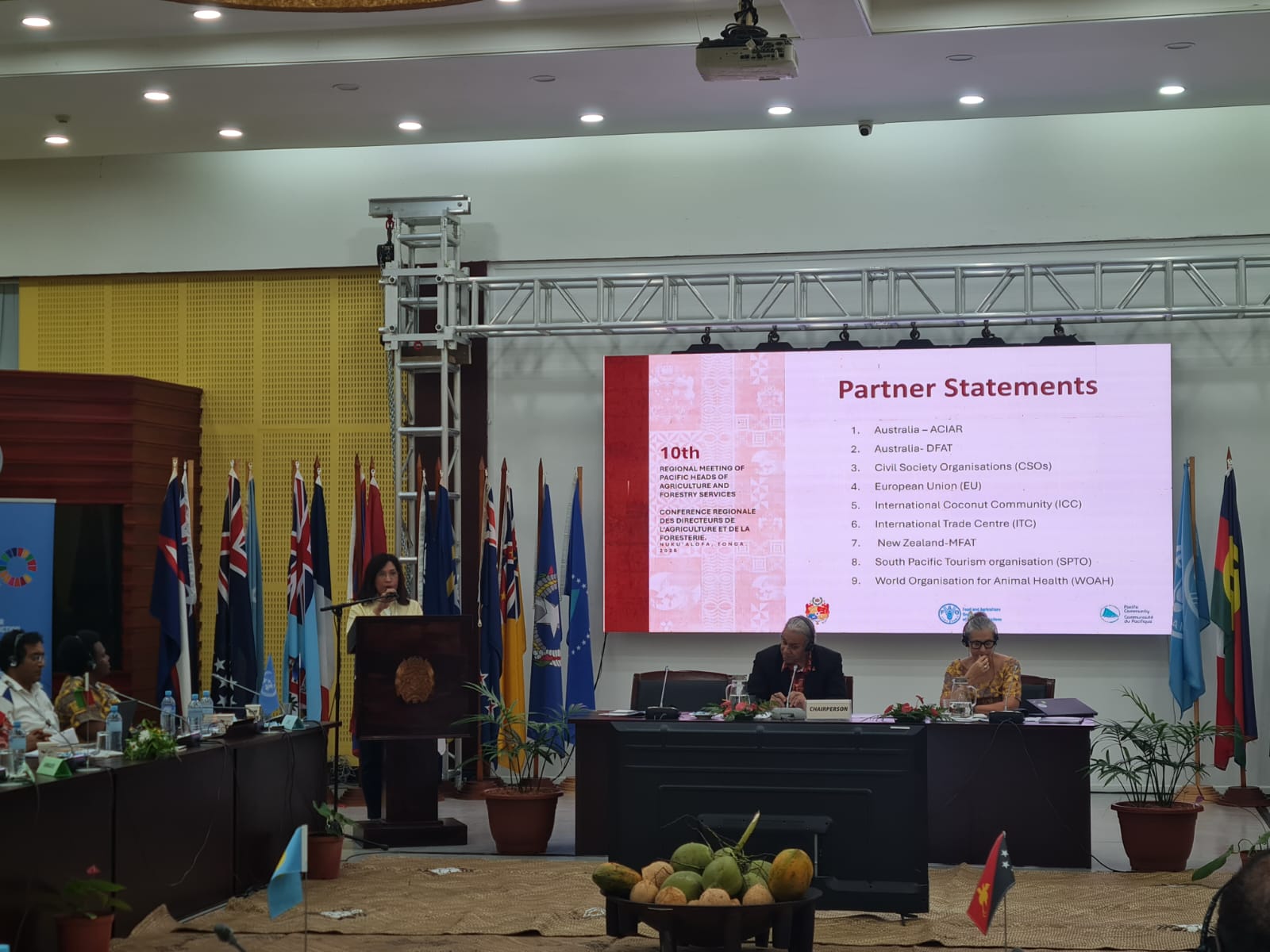
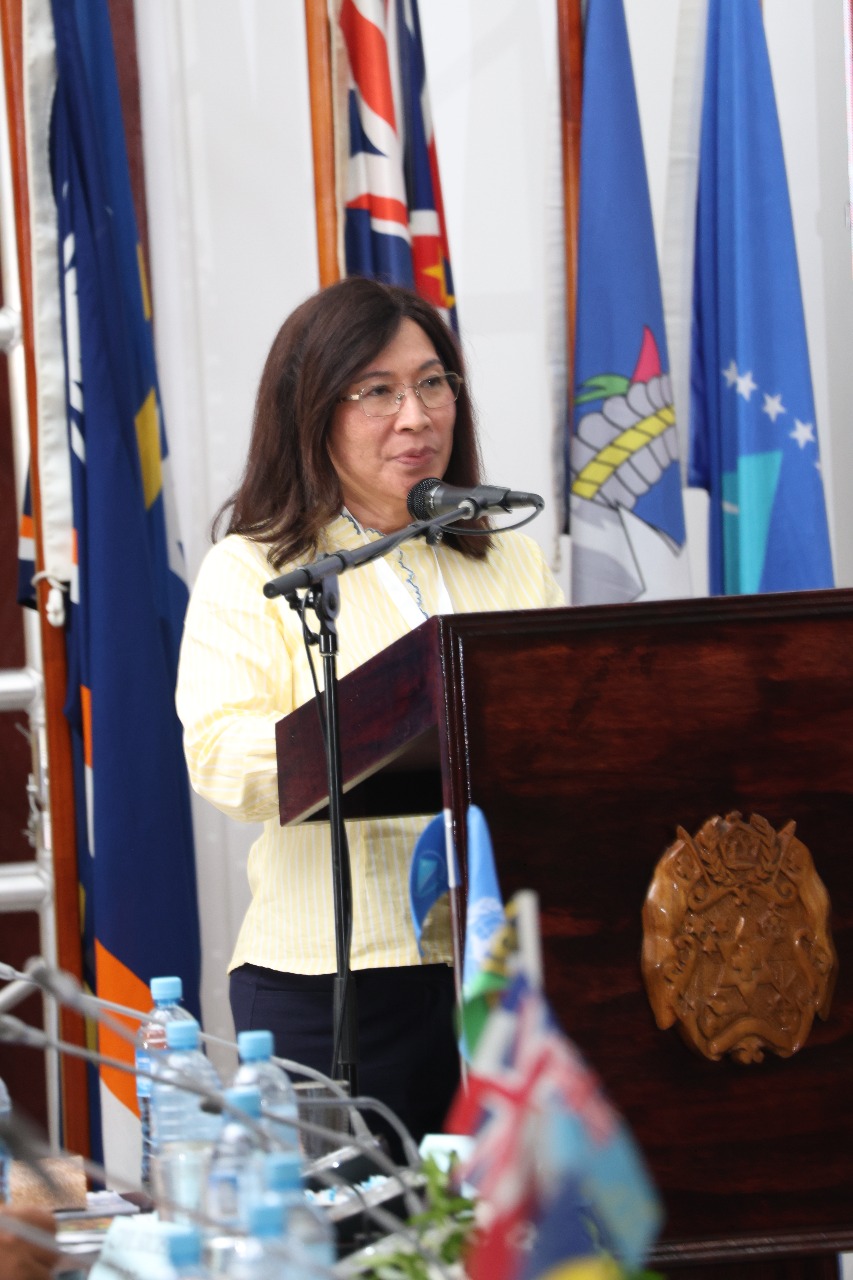
Key regional initiatives discussed and endorsed during the 10th PHOAFS meeting included the Regional Research Agenda for the Pacific, the Implementation Plan for the Regional Agriculture and Forestry Strategy, the Pacific Vision for Adapted Crops and Soils, the Guiding Framework for Invasive Species Management, and the roadmap for implementation of the Global Biodiversity Framework. These strategic initiatives are closely aligned with ICC’s ongoing efforts to support coconut-producing nations in the Pacific.
A particularly notable presentation came from Mr. Alan Aku, Managing Director of Kokonas Indastri Koporesen (KIK) and ICC's National Liaison Officer for Papua New Guinea, who shared the progress of research and development initiatives under Pasifika NiuNet—a technical body established by SPC. These initiatives include conservation of coconut genetic resources, technology transfer, and innovations in coconut processing.
During the 4th PMAF meeting, Pacific ministers of agriculture endorsed several regional and national-level initiatives that hold substantial potential to positively impact the coconut sector, including commitments to climate-resilient food systems, youth engagement, and strengthened biosecurity measures.
Nine Pacific Island countries are already members of ICC, and the organization continues to expand its partnerships. The meetings provided a unique opportunity for the ICC delegation to hold bilateral discussions with several Pacific leaders, including ministers and National Liaison Officers from Tonga, Solomon Islands, Marshall Islands, Fiji, and Samoa. These interactions helped reaffirm the commitment of existing members and deepen dialogue on capacity development and research collaboration.
Moreover, ICC held productive discussions with the delegations of Tuvalu and the Cook Islands to explore pathways for their full membership in ICC. These talks are part of ICC’s broader efforts to build a more inclusive and representative community of coconut-producing countries across the Pacific.
In parallel, ICC also initiated dialogues with key coconut-importing countries such as Australia and New Zealand on the prospect of becoming associate members of ICC. Strengthening ties with non-producing but coconut-consuming nations is a strategic move to enhance trade, investment, and knowledge-sharing throughout the coconut value chain.
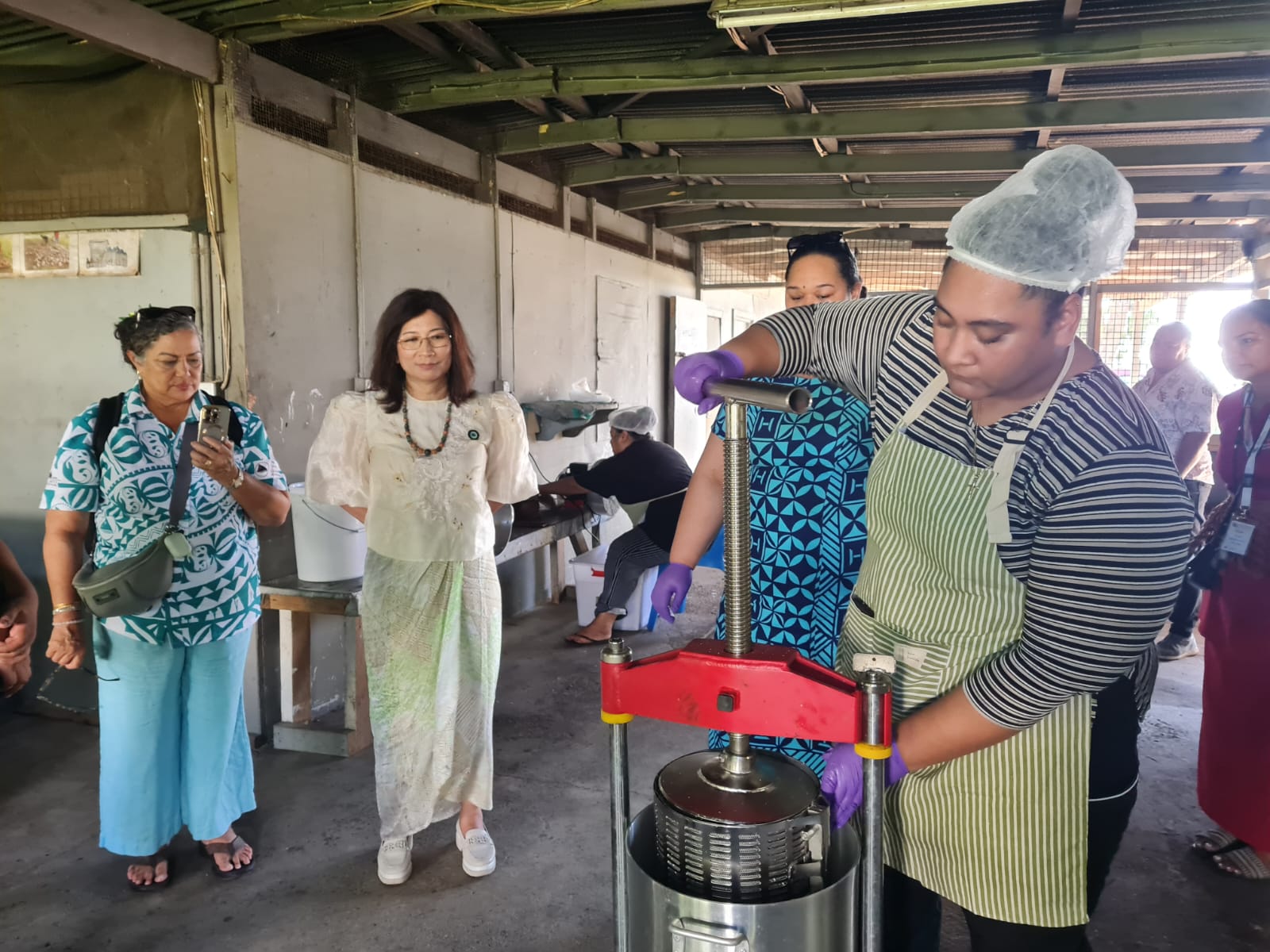
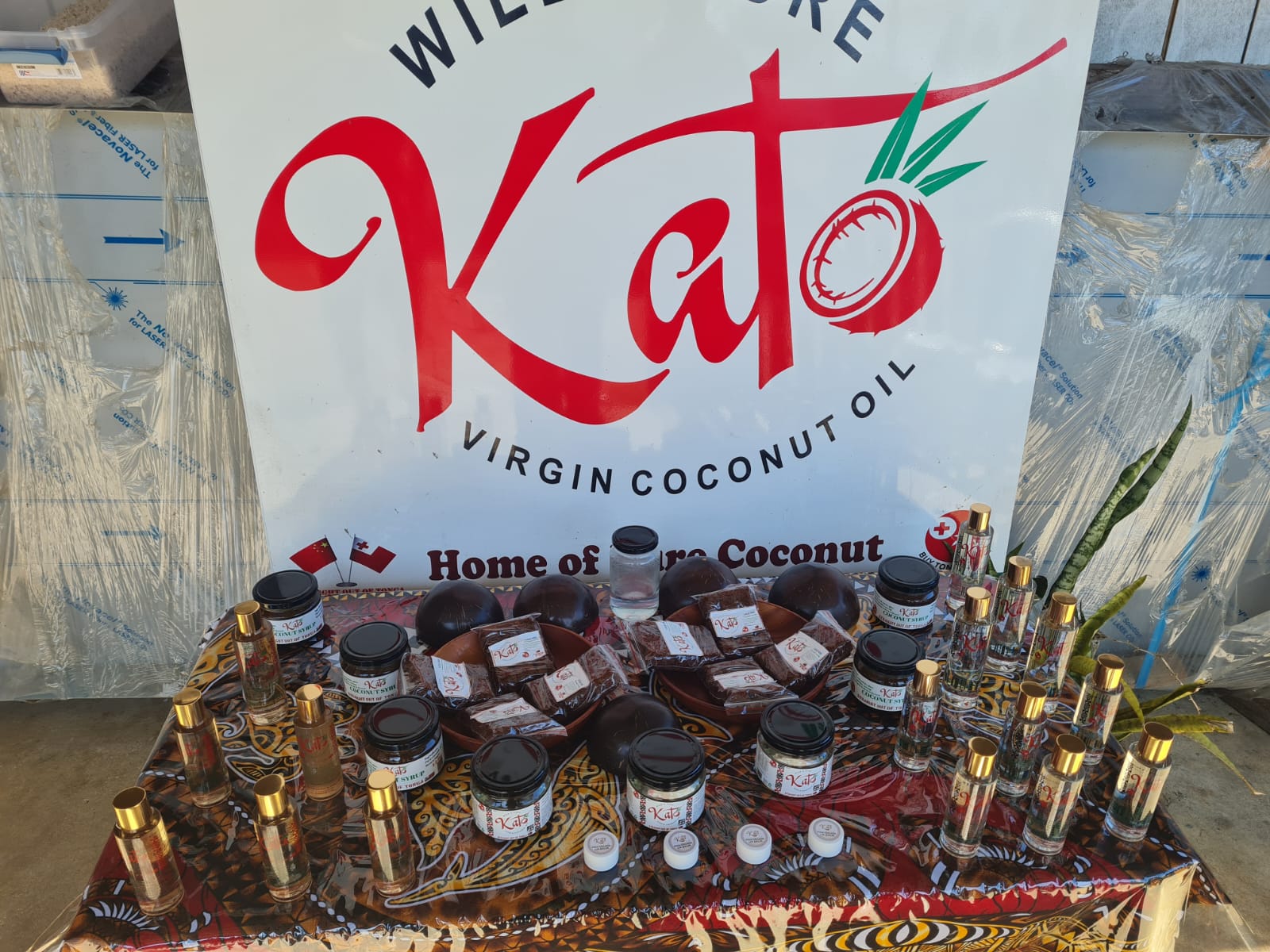
The meetings also facilitated valuable exchanges with international development partners. ICC representatives met with officials from the International Trade Centre (ITC), FAO, the Australian Centre for International Agricultural Research (ACIAR), and the Australian Department of Foreign Affairs and Trade (DFAT) to discuss collaborative opportunities in areas such as sustainable agriculture, youth innovation, and market access for smallholders.
Throughout the week, ICC delegates took part in side events, visited local coconut farms, nurseries, and small-scale processing units. These field visits provided first-hand insights into the challenges and successes of the coconut sector in Tonga. The delegation was particularly inspired by the role of women and youth-led enterprises in value-added product development such as virgin coconut oil and coconut-based confections.
Reflecting on the outcomes of the meetings, Dr. Jelfina remarked that the Pacific region stands as a model for sustainable coconut development, where traditional knowledge meets innovation. She emphasized the importance of coordinated investment, strategic partnerships, and policy alignment to ensure a resilient coconut sector that supports livelihoods, food security, and climate goals.
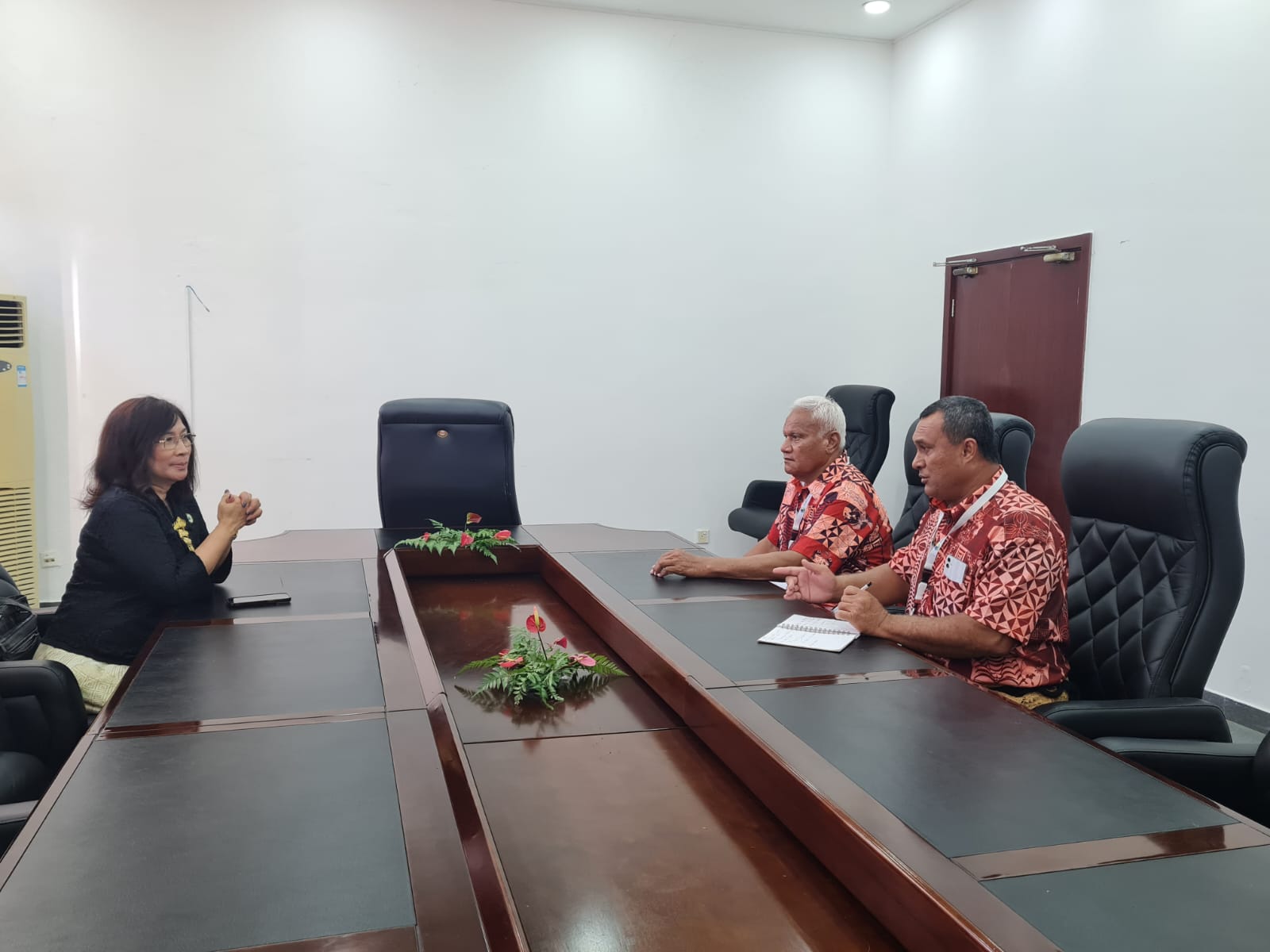
The ICC Secretariat extends its deep appreciation to the Government of Tonga, SPC, FAO, and all partner organizations for their support and engagement. The 10th PHOAFS and 4th PMAF meetings marked a significant milestone in regional agricultural collaboration, and ICC remains committed to walking alongside Pacific nations in advancing a vibrant, inclusive, and future-ready coconut industry.

